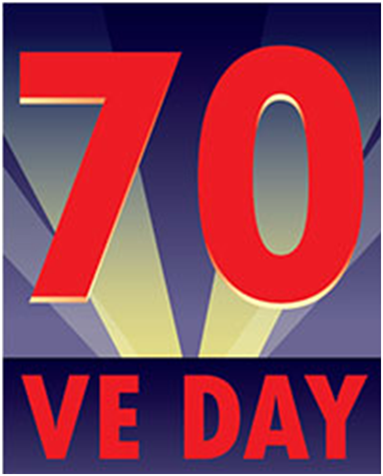VE Day - not there yet
Why is there still fighting when the battle is won? Why is there sickness and suffering if Jesus is Lord?
Advertised on the front page of this month’s Broadsheet is the annual D-Day memorial service held at the ‘Harwell Stone’. Harwell and Chilton have a strong historic connection to the events of D-Day, 6 June 1944, in which Allied forces invaded northern France. The beach landings in Normandy were a break through the German army’s defences, and the beginning of an attack that took them all the way to the German capital Berlin, to the bunker that was Adolf Hitler’s headquarters. D-Day was a decisive day that culminated in bringing World War Two to an end.

But the War in Europe didn’t actually end until VE-Day, 8 May 1945, the 70th anniversary of which we have just celebrated. There was an 11-month gap between D-Day and VE-Day. The decisive battle had been won on D-Day, but it was not until VE-Day that hostilities ceased.
There is often a time lag between a decisive event and its conclusion. Cancer is a terrible disease and sometimes there is no cure. But sometimes an operation can remove the cancer which would otherwise kill the individual affected. The surgical ‘cure’ is instant, but it can take weeks or months for the person to make a full recovery.
On the Cross, Jesus won the decisive battle against the hostile forces set against humans. He defeated sin and death itself, proving his victory by rising from the dead. But that victory was won almost 2000 years ago, and still sin and death are very much a part of our world. How does that fit with talk of Jesus being ‘the victor’? There is much in the world that would seem to contradict such a notion.
But Jesus’ victory is similar to the victory of the Allies. The Cross marked a kind of cosmic ‘D-Day’ – a decisive win. But hostilities will continue until the appointed ‘VE-Day’ (‘Victory on Earth Day’) when Christ will return in glory, crush his enemies, and establish a new heaven and a new earth, when wars will cease and death shall be no more.
But why the delay? 2000 years seems an awfully long time to wait. God has his reasons. The Apostle Peter, brutally martyred for his faith in Jesus, understood and wrote:
“Dear friends, don’t forget that for the Lord one day is the same as a thousand years, and a thousand years is the same as one day. The Lord isn’t slow about keeping his promises, as some people think he is. In fact, God is patient, because he wants everyone to turn from sin and no one to be lost.”
(2 Peter 3:8-9)
The Lord is not unmerciful in delaying – quite the opposite. In this time between the First and Second Coming of Christ, God is giving all people an opportunity to join God’s side, the winning side. Have you joined the side of the divine victor?
Revd Dr Jonathan Mobey
Rector of Harwell and Chilton
June 2015